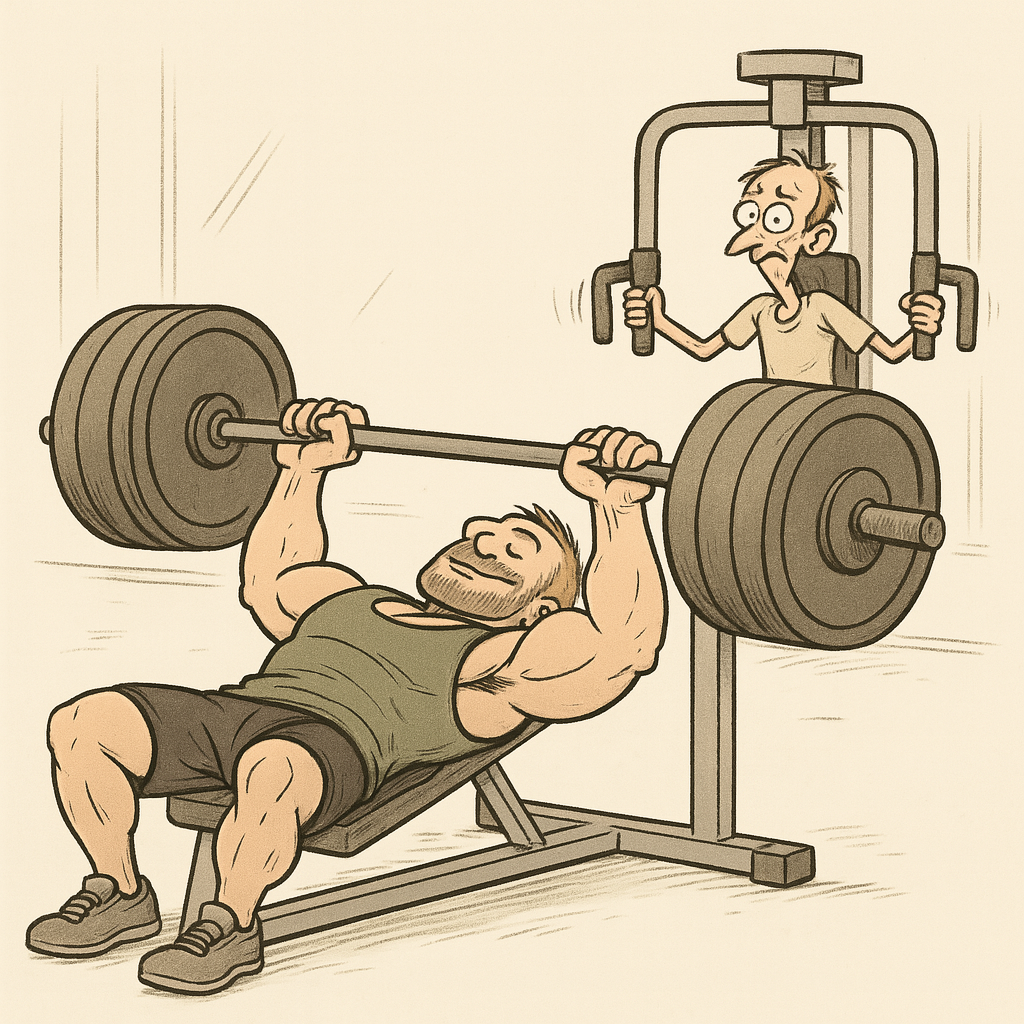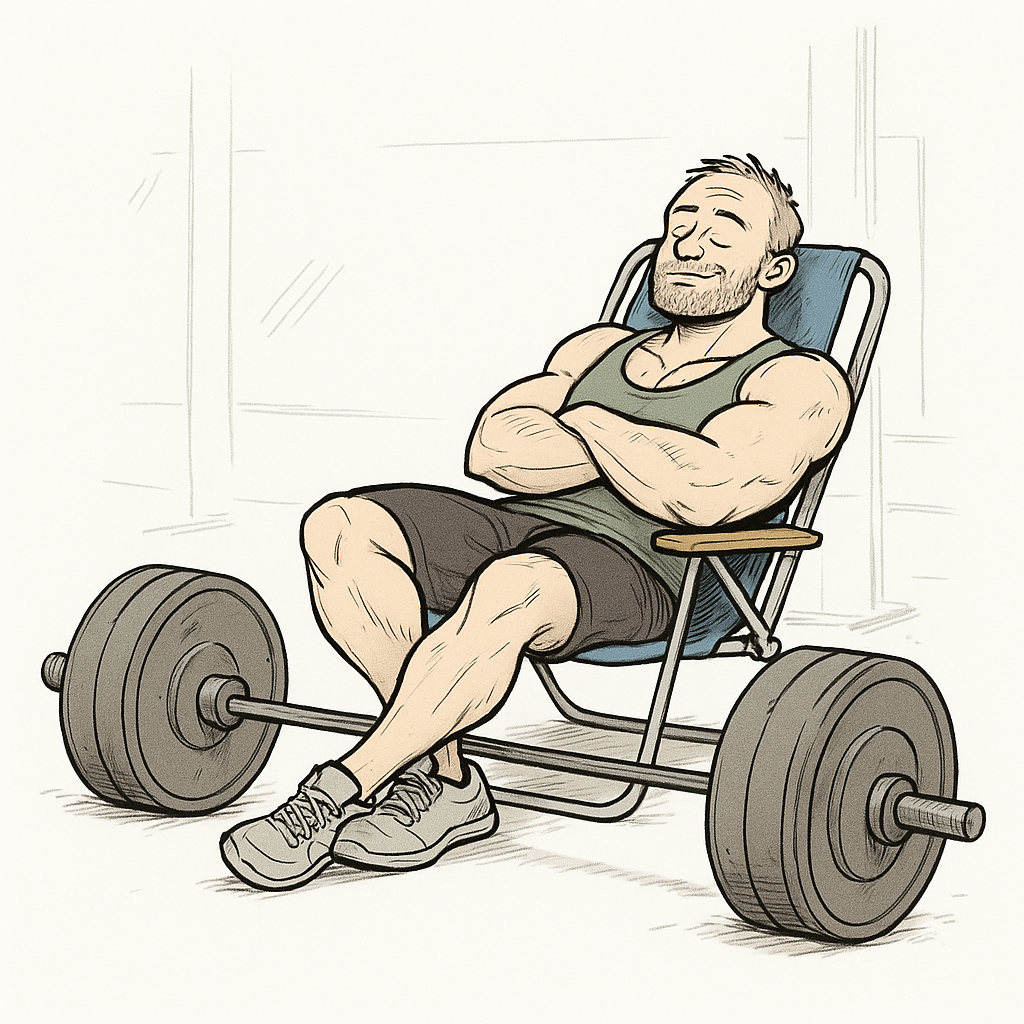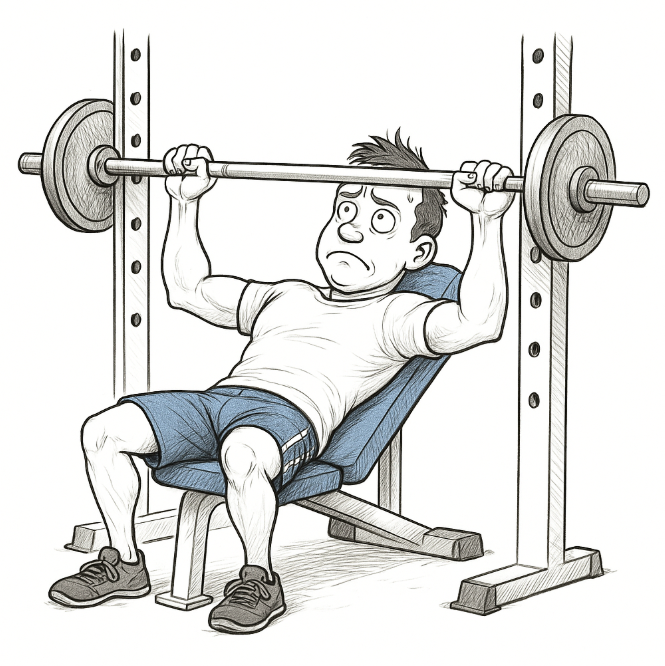
Battle of the Chest-Builders: Bench Press vs Machines
Do machines really isolate better? Or is the barbell bench press still king of pec power? We dig into the science.
Bench Press vs Machines: Who Wins the Chest Day Crown?
The bench press has been a gym staple for decades. It’s the go-to for building a big chest, testing strength, and starting every Monday workout. But in recent years, machine-based chest training has gotten a lot of attention—especially for lifters chasing pure hypertrophy or dealing with nagging shoulders.
So what’s better: pressing a barbell or using machines designed to isolate your chest? Let’s look at what the research says, and how you can use both more effectively.
Popular Myth #1 – “Machines Build the Chest Better”
A common argument in favor of machines is that they offer better isolation. No balance needed, no stabilizers involved—just pure pec focus. They also often feel smoother, more comfortable, and put less strain on joints.
The problem is, feeling the pecs working more doesn’t always translate to more growth. Muscle hypertrophy is mainly driven by mechanical tension over time—not just muscle "burn" or a strong mind-muscle connection.
What the Research Says (2021–2025)
2021 EMG Study (Schick et al.): Barbell bench press showed higher overall pec activation than the chest press machine at the same load in trained lifters.
2023 RCT (Morris et al.): Over 10 weeks, a group training the barbell bench gained 6.1% more pec size than the machine group. Strength improvements also favored the bench.
Classic 2005 Study (Glass & Armstrong): While the pec deck showed higher peak activation of the chest, compound presses activated more total musculature and allowed for heavier loading—key for long-term progress.
In short, machines can be useful—but they probably shouldn’t replace your heavy pressing.
Popular Myth #2 – “The Bench Press is Bad for Your Shoulders”
This is one of the most common concerns about the bench press. And yes, it can be tough on the shoulders—but only if technique is off, volume is excessive, or the setup isn’t personalized.
In contrast, machines feel more stable and predictable, which makes them a great option for some lifters. But they lock you into a fixed movement path that may not actually match your shoulder structure. For some, that causes more irritation than a properly-executed bench press ever would.
Real Talk: Why the Bench Still Wins
Let’s compare these two side by side:
| Factor | Bench Press | Chest Machines |
|---|---|---|
| Total Load Potential | ✅ High | ❌ Moderate |
| Stabilizer Activation | ✅ Engaged | ❌ Minimal |
| Progressive Overload | ✅ Easy to track | ⚠️ Often limited increments |
| Injury Risk | ⚠️ Technique-dependent | ⚠️ Structure-dependent |
| Pec Isolation | ⚠️ Moderate | ✅ High |
| Transfer to Other Lifts | ✅ Strong | ❌ Minimal |
If your goal is long-term chest development and pressing strength, the bench press offers more upside. Machines can complement that—but they probably shouldn’t be your main course.
How to Use It #1 – “Prioritize, Don’t Demonize”
It’s not about one being “better”—it’s about when and how you use them. Here’s a solid approach:
- Start with a compound lift (like the barbell or dumbbell bench).
- Follow with machine work to target the chest more directly, especially once fatigue sets in.
- Use machines for pump sets, finishers, or when you're managing joint issues or recovery.
How to Use It #2 – “Push Then Polish”
Here’s a sample chest day that blends both effectively:
- Barbell Bench Press – 3–4 sets, 6–10 reps
- Incline Machine Press or Smith Press – 3 sets, 6–10 reps
- Dumbbell or Pec Deck Flyes – 2–3 sets, 6–12 reps
Compound lifts provide the base. Machines help refine and finish the session.
Quick Questions
What if I feel my chest more on machines?
That’s okay. Feeling a muscle isn’t the same as producing meaningful mechanical tension—but it can be a useful signal when programming accessories or finishers.
Can I build a great chest using only machines?
Technically, yes. But it’ll likely take more sets, more intensity techniques (like drop sets), and tighter progression. You’ll also miss out on the global strength and stability gains of the bench.
Should beginners start with machines?
Machines can be a great starting point, especially for confidence and safety. But learning how to bench with proper form pays off in the long run.
TL;DR
Use both. Let the bench press do the heavy lifting. Let machines finish the job.
Smart programming always wins.
References
- Schick EE, Coburn JW, Brown LE, et al. “EMG comparison of free-weight and machine chest press,” J Strength Cond Res, 2021.
- Morris JP, Rigsby A, Leone C, et al. “Hypertrophy Outcomes Between Machines and Barbells,” Eur J Appl Physiol, 2023.
- Glass SC, Armstrong T. “EMG analysis of upper-body exercises,” J Strength Cond Res, 2005.


